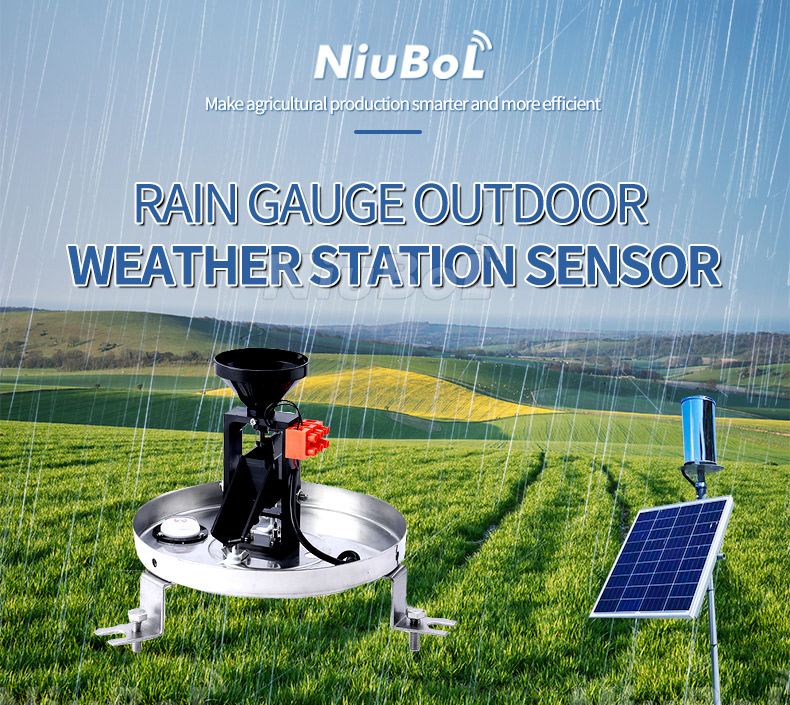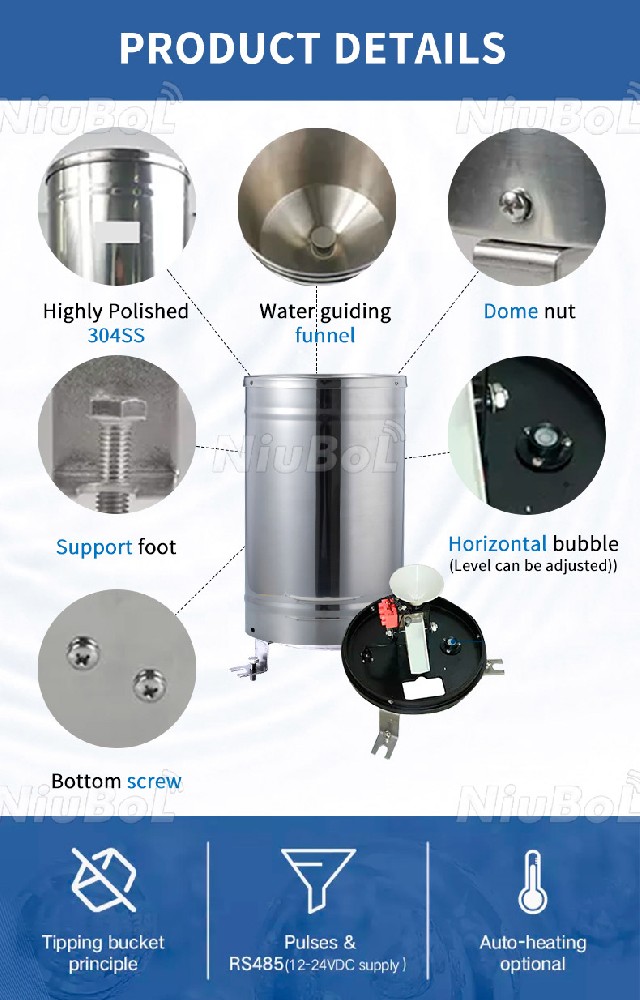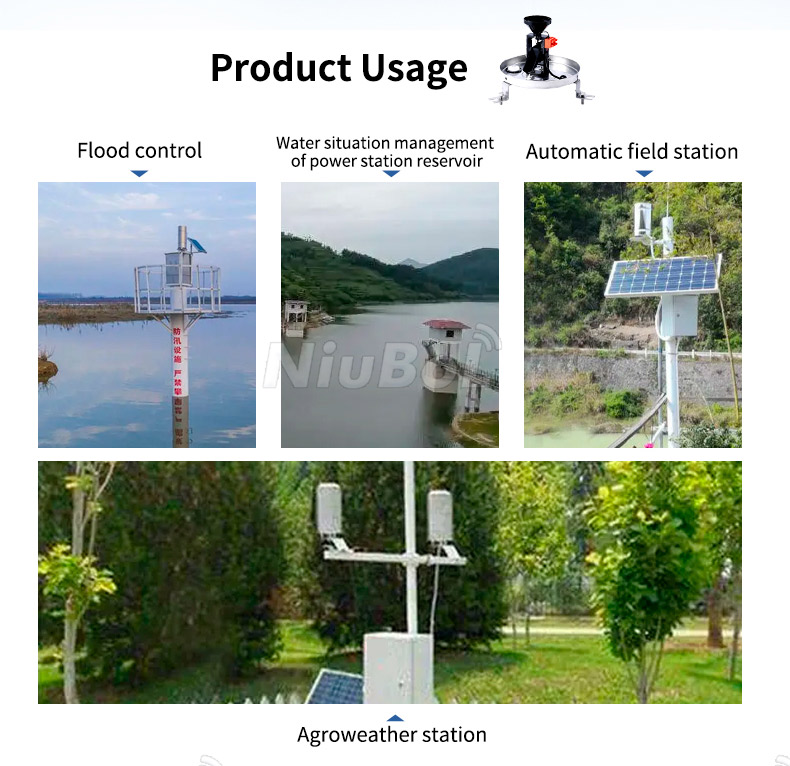

— Blogs —
—Products—
 Consumer hotline +8618073152920
Consumer hotline +8618073152920 WhatsApp:+8615367865107
Address:Room 102, District D, Houhu Industrial Park, Yuelu District, Changsha City, Hunan Province, China
Product knowledge
Time:2023-08-30 14:58:41 Popularity:800
A rain gauge sensor is a device used to measure the amount of rainfall. They are widely used in meteorology, hydrology, agriculture, urban planning, and other fields to provide accurate rainfall data.
The common working principles of rain gauge sensors are based on tilt bucket or vibration technology. Here are several types of rain gauge sensors:

1. Tipping bucket rain gauge sensor.
2. Vibrating wire rain gauge sensor.
3. Radar rain gauge sensor.
4. Optical rain gauge sensor.
5. Multi-parameter rain gauge sensor.
Rain gauge sensors have important applications and value in agricultural meteorological monitoring. Here are some applications and values of rain gauge sensors in agriculture:
1. Irrigation management: In agricultural production, proper irrigation management is crucial for crop growth and yield. Rain gauge sensors can provide accurate rainfall data, helping farmers determine the irrigation volume needed for crops. Based on actual rainfall conditions, farmers can adjust their irrigation plans to avoid over-irrigation or insufficient water, thereby improving irrigation efficiency and preserving water resources.
2. Drought and flood prevention: Rain gauge sensors can monitor and record rainfall in a timely manner, providing early warning information about droughts and floods to farmers and agricultural authorities. When rainfall deviates significantly from normal levels, appropriate measures can be taken promptly to address drought or flood disasters, protecting crops from severe impacts.
3. Crop management: Rainfall data is crucial for managing crop growth and development. With rainfall data recorded by rain gauge sensors, farmers can adjust management practices such as fertilization, pest control, etc., according to the water requirements and growth stages of crops. This helps optimize the crop growing environment, improve crop yield and quality.

4. Selection of suitable crop varieties: Different crops have different requirements for rainfall and its distribution. With rainfall data obtained from rain gauge sensors, farmers can choose crop varieties that are suitable for local climate conditions, ensuring crops can fully utilize rainfall water resources and adapt to different rainfall distribution patterns.
5. Agricultural risk management: By monitoring and recording rainfall conditions, rain gauge sensors provide important information for agricultural risk management. This includes assessing potential drought or flood risks, formulating corresponding agricultural insurance and compensation plans, reducing agricultural losses, and providing reliable decision support for farmers.

In summary, rain gauge sensors have widespread applications and significant value in agricultural meteorological monitoring. By providing accurate rainfall data, rain gauge sensors assist farmers in irrigation management, drought and flood warning, crop management, crop variety selection, and agricultural risk management. These applications and values contribute to improving agricultural production efficiency and sustainability, reducing agricultural losses, and providing farmers with more decision support.
Prev:The price of rain gauge and how to buy the right one
Next:Rain gauge sensors applications and value in meteorological environmental monitoring
Related recommendations
Sensors & Weather Stations Catalog
Agriculture Sensors and Weather Stations Catalog-NiuBoL.pdf
Weather Stations Catalog-NiuBoL.pdf
Related products
 Combined air temperature and relative humidity sensor
Combined air temperature and relative humidity sensor Soil Moisture Temperature sensor for irrigation
Soil Moisture Temperature sensor for irrigation Soil pH sensor RS485 soil Testing instrument soil ph meter for agriculture
Soil pH sensor RS485 soil Testing instrument soil ph meter for agriculture Wind Speed sensor Output Modbus/RS485/Analog/0-5V/4-20mA
Wind Speed sensor Output Modbus/RS485/Analog/0-5V/4-20mA Tipping bucket rain gauge for weather monitoring auto rainfall sensor RS485/Outdoor/stainless steel
Tipping bucket rain gauge for weather monitoring auto rainfall sensor RS485/Outdoor/stainless steel Pyranometer Solar Radiation Sensor 4-20mA/RS485
Pyranometer Solar Radiation Sensor 4-20mA/RS485
Screenshot, WhatsApp to identify the QR code
WhatsApp number:+8615367865107
(Click on WhatsApp to copy and add friends)